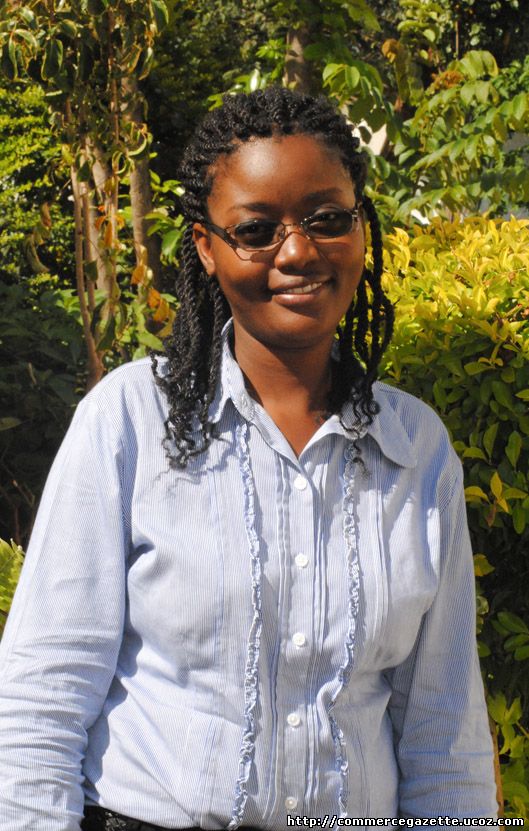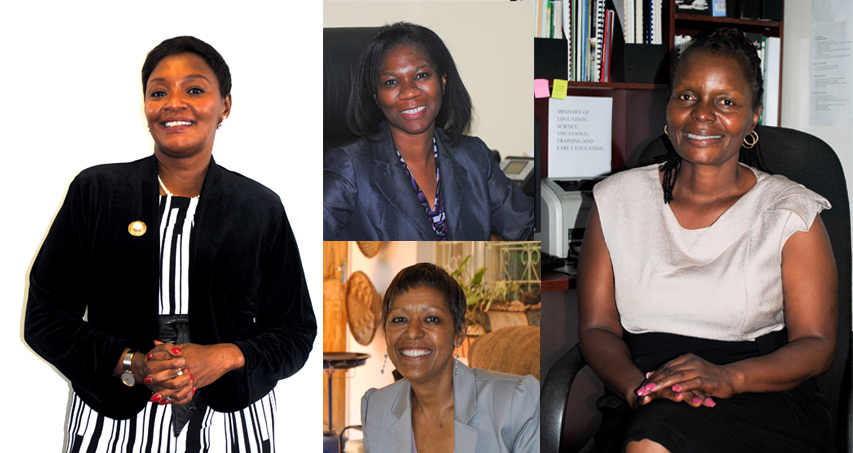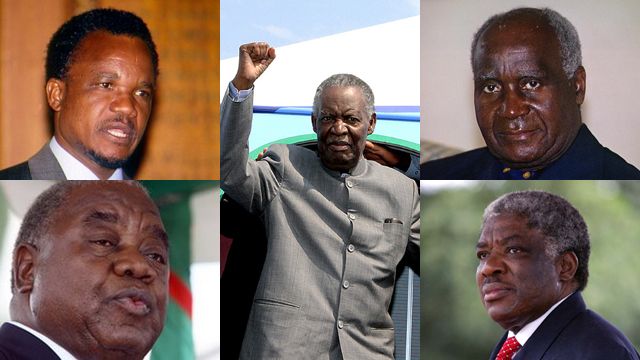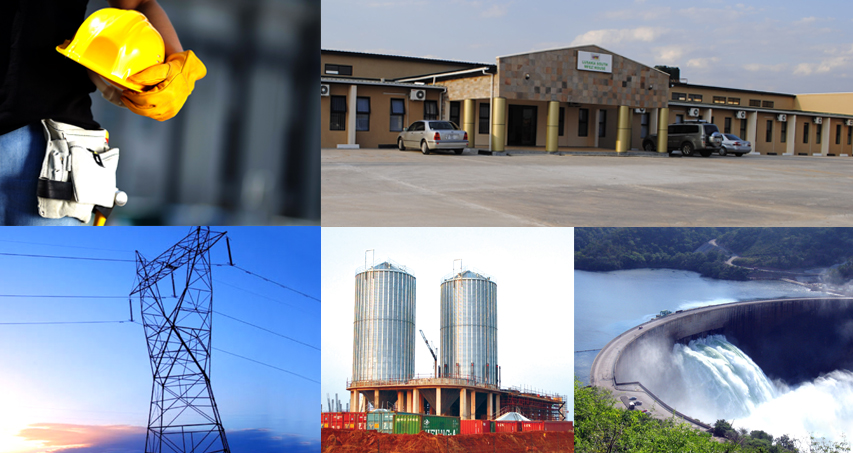 |
Making a difference Have you ever noticed that in any family, group or situation there seems to be one or two people who dominate the dynamics and do not follow the herd? They have your own thoughts, ideas, beliefs, behaviour and personality. They also have an impact on other people who defer to them and allow them to take the lead in decision and consensus making. For the average young person, the relentless spectacle of being in-charge is a duty demanded upon them by elders. It can be overwhelming and it maybe something unfamiliar. For Sombo Chundu, it was the norm. |
||
One of her earliest memory was being entrusted with small but significant tasks by her father. Among her most profound experience was collecting money from the bank on his behalf, drawing up a shopping list and purchasing groceries for the home. Her parents’ trust boosted her confidence and instilled integrity of character. At school Sombo worked hard, pursued leadership positions and was either class captain or the deputy. She was deputy head girl before graduating and class representative in college. Her willingness to lead was a sign of things to come. Sombo is an accountant by profession, certified by the Association of Chartered Certified Accountants (ACCA) following the completion of her NATECH studies from Chingola School of Accountancy. Having attained her MBA from Heriot-Watt University, she has both financial and management skills. This qualifies her to move between roles, industries and sectors. Sombo says if the youths are the future leaders of Zambia then it is important to nurture their leadership skills sooner rather than later. ‘As long as we think that their time will come later and we should shut them up now because their time will come later then we are not being of service to them. How do we expect them to lead then when we are not even giving them any opportunity to be in leadership now?’ Working at Diakonia-Zambia Diakonia works with local partner organizations to carry and implement projects. It only provides institutional and financial support in line with its belief in people’s equal value and the right of all people to a dignified life. Therefore, Diakonia strives to raise awareness and works with decision makers to bring change and development for everyone by empowering people to demand what is rightfully theirs. In the early years of her career, Sombo’s work was centred towards her profession as an accountant. Her first job at Chloride Zambia in Kitwe and subsequent appointments at Copperbelt Health Education Project, Campaign for Female Education were solely in the finance department as an accountant. Her advocacy involvement began while at Copperbelt Health Education Project where she was exposed to advocacy training in Mozambique and which she became involved in various campaign work carried out. This continued when she joined Campaign for Female Education whose work is centred on women and girls’ education and a cause she enjoyed working on. Her administrative career took off when she was appointed at Diakonia as a finance and administration officer. She worked mostly with capacity building of partners. In the absence of her boss, Somba was responsible for the all office functions. Unfortunately her manager, Docas, passed away and Somba was offered an interim position in anticipation of the office closing due to its projects coming to term. However, it was soon realized that Diakonia work’s still has relevance in Zambia especially that it is experiencing strong economic growth due to improved copper sales. Companies under fire for tax avoiding - offshore profits To improve the living standards of its citizens, government has been under ever-increasing pressure to raise as much tax revenue as possible. The money is needed to bolster its capabilities to fight poverty. Sombo confirms that reports indicate Congo has overtaken Zambia as the number one copper producing nation in Africa. However she argues that whether Zambia is placed first or second in copper production is irrelevant, what is relevant is how it has used the resources from copper to enhance life for the majority of citizens. Rather than accuse anyone, Sombo says Diakonia is urging everyone to explain more. For many years companies faced relatively little scrutiny on their tax contributions, but both citizens and a wider range of stakeholders are asking more questions now. Greater tax transparency is required. Multinational companies and those working in the extractive industries are advised to fall in line with changing public sentiment as having a better and broader discussion about tax helps everyone. However, many multinational companies remain resistant to public and political pressure to end tax avoidance. Evidence of a serious shift in the culture of tax evasion is not yet available. What has become evident lately is corporate resentment at the public’s reaction against their tax avoidance practices. Multinationals, mostly mining companies have gone on a media offensive explaining that they are operating within tax laws. They explain that taxes are an incredibly complex subject whose intricacies have yet to be understood by the public, especially in the extractive industry where huge capital investments are required to keep the mines profitable. Sombo points to the international study carried out by Diakonia in partnership with Swedwatch that showed how four multinational companies (Sandvik, Atlas Copco, SKF and Ericsson) behaviour regarding tax payments in Zambia. The report concludes that while their tax action is perfectly lawful, what is morally dubious is that there is no information on how these companies handle tax planning in Zambia, nor is this information available in the companies’ annual reports. ‘None of the companies were willing to disclose figures on their earnings and tax payments in Zambia.’ It would seem that going beyond profits to enrich the quality of life of the community in which these multinationals operate - not through corporate social responsibility but - by them paying their fair share of taxes is still a concept some companies operating in Zambia fail to appreciate. A sight for sore eyes – accountability needed Civil society organizations have continued ‘making noise about corporates evading tax’. For companies avoiding to be labeled as tax evaders, ‘reputation’ is driving them to modify their behaviour and some are issuing more detailed information about their tax-planning activities. ‘As government has more money to spend people should be involved in the budget process to advise on the priority areas they wish to see developed, to increase accountability and to make sure that projects are executed accordingly.’ Sombo says councils are responsible of local service delivery and expenditure. She says they too should be scrutinized to see which sectors are being developed and if the monies released by the treasury are spent as allocated. Councils upholding municipal laws that include maintenance of streetlights, city cleanliness, soil and water quality safety checks to ensure no contamination and garbage collection including providing public facilities such as markets and bus stations among other responsibilities. Sombo says citizens should be informed on government’s and corporates primary responsibility. In mining cities such as Solwezi, people are confused and believe that the mining company is responsible for creating jobs and wealth. She says government should quickly resolve land ownership wrangles, loss of land for farming and deforestation and the public should be informed that government is responsible for the provision of good roads, hospitals, schools, prisons and security. Mine companies have an obligation to ensure their operations do not pollute the water and air, force citizen off their land, cause physical damage to houses and create unsafe health effects on people. ‘I think that if only a few people ask questions whoever is accountable becomes complacent and they think that ‘well, we can just go on, it’s just a few voices, forget them.’ If we can get a large number of people asking questions then it makes people that are supposed to be accountable think twice before they act in a particular way.’ Among the institutions that Diakonia works with is Civil Society for Poverty Reduction (CSPR) that trains local residents to track budgets apportioned to their district through the national budget. CSPR’s Northwestern province members residing in Wisdom compound in Solwezi were able to notice after getting the tracking training that money was released annually to their local authority to sink boreholes in their community but this was never done. When the residents brought this discrepancy to the council official’s attention the boreholes were sunk. ‘Diakonia wants to see more citizen participation in local development. A sustained momentum of people participating on issues of public concern ensures that the government and corporates are accountable.’ The constitution and democracy A report on the state of political governance in Zambia entitled ‘Non State Actors - Building Democratic Culture in Rural Communities’ that was launched last year impressed upon her the importance of being clear and precise on matters of public interest. Concerns on the public order act, the constitution, women’s participation in governance and the NGO act could not be sugar coated to placate anyone including the authorities. ‘If we can get a whole lot of people to understand that the leaders that have been put in places of authority are accountable to the people then at least we’ll be making progress.’ Sombo says ideally people in positions of authority should not be told what they are supposed to do because they already know their obligation. The issue of making a new constitution is a lot to do with people being accountable; if people have said they are going to do certain things then they should do them and if they don’t, then they should explain why not. Nor should they expect the people to keep quiet as a result of their failure to uphold their word? While Zambia has a functioning constitution, if the people have a problem with it and want to make amendments or enact a new one no one should prevent them from doing so. The process should not be used as a means of suppressing their wishes because Zambians more than anyone else have the ability to make decisions in their own best interest. Sombo says she was impressed with a delegation of 5 members of parliament from Sweden, representing 5 political parties who visited Zambia last year under the auspices of Diakonia. Her interaction with them revealed the high regard they place on representing their constituents professionally despite their different opinions. She expresses the desire to see Zambian members of parliament put the concern of their electorate before partisan and personal interests. |
|||


